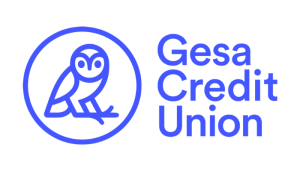Fixed Income vs. Variable Income – deciding between these two investment options can be challenging. Both offer distinct benefits and drawbacks, with the main difference lying in how they generate returns. Understanding each is crucial for making informed financial decisions.
Fixed Income provides stability and predictability, while Variable Income has the potential for higher returns, but with added risk. If you’re seeking safety and consistent income, fixed income may be more appealing. However, if long-term growth is your goal, variable income could be the better choice.
Your decision depends on your financial goals and risk tolerance. Want to know which investment option is best for you? Keep reading to find out which one suits your needs.
What is Fixed Income?
Fixed income investments are those where the investor receives regular, predictable payments at a set interest rate for a specific period. These investments are usually considered safer than variable income ones because they offer stability and lower risk. The most common types of fixed income securities include bonds, certificates of deposit (CDs), and treasury bills.
The primary appeal of Fixed Income investments is their stability. For example, when you purchase a bond, you’re essentially lending money to an entity (government, corporation, etc.) in exchange for a fixed rate of interest, often paid semi-annually. When the bond matures, you get back the principal you initially invested.
Benefits of Fixed Income
- Predictable Returns: The most attractive feature of fixed income securities is the predictability of returns. Investors know exactly how much they will receive and when. For retirees or those seeking to reduce financial uncertainty, fixed income investments provide a sense of security.
- Lower Risk: Fixed income investments, especially government bonds, are considered relatively safe. Since they promise a fixed interest rate, the risk of losing money is lower compared to more volatile investments like stocks.
- Diversification: Including fixed income investments in your portfolio can help diversify risk. While equities (variable income) might fluctuate in the short term, fixed income investments can offer a stable income stream.
- Capital Preservation: Since fixed income investments focus on preserving capital, they are ideal for investors who want to protect their initial investment while generating income. Bonds, for example, typically offer lower returns but at a much lower risk of losing your capital.
Risks of Fixed Income
- Inflation Risk: The fixed interest payments from bonds may lose value in times of high inflation, eroding purchasing power over time.
- Interest Rate Risk: When interest rates rise, the value of existing fixed income investments tends to fall. This is especially a concern for long-term bonds, as their fixed rates become less attractive compared to newer bonds offering higher rates.
- Lower Returns: While fixed income investments are safer, they generally offer lower returns than their variable income counterparts. This can be a disadvantage for those seeking high growth.
What is Variable Income?
Variable income investments, on the other hand, are assets whose returns can fluctuate based on market conditions. These investments are typically more volatile but offer the potential for higher returns over time. The most common types of variable income securities include stocks, real estate, and mutual funds.
Benefits of Variable Income
- Higher Potential Returns: Unlike fixed income, which provides fixed returns, variable income investments can generate higher returns if the market performs well. For example, investing in stocks offers the potential for capital appreciation, dividends, and growth over time.
- Growth Potential: Variable income investments, particularly stocks, provide opportunities for wealth accumulation. While returns are not guaranteed, over the long term, equities have historically outperformed other asset classes, making them a popular choice for investors looking to build their wealth.
- Diversification: Just as with fixed income, having a diverse portfolio with a mix of variable income investments can help balance out risks. Stocks in different sectors, regions, and industries offer varying levels of risk and potential reward.
- Liquidity: Many variable income investments, especially stocks, are highly liquid, meaning they can be bought or sold quickly. This provides investors with the flexibility to adjust their portfolios based on changing market conditions.
Risks of Variable Income
- Market Volatility: One of the biggest risks of variable income investments is market volatility. Stocks, in particular, can experience significant price fluctuations, which can lead to large short-term losses.
- Uncertainty: The returns on variable income investments are not guaranteed and can be influenced by external factors such as economic conditions, company performance, and geopolitical events. This makes them riskier compared to fixed income options.
- Risk of Loss: While the potential for high returns exists, so does the risk of significant losses. For example, a company’s stock price could plummet due to poor earnings or other adverse events, leading to financial losses for investors.
- Emotional Stress: The unpredictable nature of variable income investments can create emotional stress for investors. Constant fluctuations in portfolio value might lead to anxiety, particularly during market downturns.
Fixed Income vs. Variable Income: Key Differences
Now that we’ve explored both types of investments, let’s compare them directly to help you make an informed decision about where to place your money.
| Feature | Fixed Income | Variable Income |
|---|---|---|
| Risk | Lower, more predictable | Higher, more volatile |
| Return Potential | Lower, more stable | Higher, but not guaranteed |
| Income Stream | Regular, fixed payments | Fluctuating, dependent on market conditions |
| Liquidity | Less liquid, especially long-term bonds | More liquid, particularly with stocks |
| Investment Horizon | Ideal for short-to-medium term investors | Suitable for long-term investors |
| Diversification | Helps reduce risk by offering stability | Provides growth potential but with higher risk |
| Inflation Protection | Vulnerable to inflation | Potentially better inflation protection due to higher returns |
| Ideal For | Retirees, conservative investors, those seeking steady income | Growth-focused investors, those willing to take more risk |
Which Is Best for You?
Choosing between Fixed Income vs. Variable Income ultimately depends on your financial goals, risk tolerance, and investment horizon. Here’s a quick breakdown to help guide your decision:
Choose Fixed Income If:
- You prioritize stability and predictability in your investment returns.
- You’re looking for investments that provide regular income, especially if you’re nearing retirement.
- You have a low tolerance for risk and prefer to avoid market volatility.
- You want to preserve your capital while earning a modest return.
Choose Variable Income If:
- You are seeking higher returns and are willing to accept greater risk.
- You have a long-term investment horizon and can ride out market fluctuations.
- You’re comfortable with the uncertainty that comes with market-driven returns.
- You want to invest in growth-oriented assets like stocks, mutual funds, or real estate.
Conclusion
The debate of Fixed Income vs. Variable Income comes down to balancing risk and reward. Fixed income investments offer safety and predictable returns, making them an ideal choice for conservative investors or those in need of a stable income.
Variable income investments, on the other hand, provide growth potential and higher returns, making them better suited for long-term investors with a higher risk tolerance.
Ultimately, the best investment strategy might involve a combination of both fixed and variable income assets. Diversifying your portfolio with a mix of both can help you manage risk while also providing opportunities for growth.
Be sure to assess your financial goals, investment horizon, and risk appetite before making any decisions, and don’t hesitate to consult with a financial advisor to develop a strategy that’s right for you.
By understanding the pros and cons of both Fixed Income vs. Variable Income investments, you can make smarter, more informed choices that align with your financial objectives.





